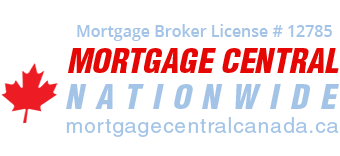Debt Consolidation and Your Credit Score
Improving their credit score is one of the top reasons why most people decide to consolidate debt. The fact is, improving your credit score is possible with long-term debt consolidation; however, you have to be careful because your credit score can decrease with short-term debt consolidation.
Can Consolidating Debt Hurt Your Credit?
Do you know that creditors make it a point to do a hard credit check on you whenever you take a new card or loan? This lowers your credit score temporarily. Getting a balance transfer can lower it even more since it is viewed as a new credit card. If your transferred balance is quite a lot, that can further hurt your score because that will register as a high credit utilisation ratio. You should take all these factors into consideration more so if you’re planning on getting another loan in the near future.
Can Debt Consolidation Help Your Credit?
You can improve your credit with debt consolidation because it helps you pay your loans on time and do so quickly. On-time payments have a huge positive impact on your credit rating. Basically, you want to have as little debt as possible to effectively improve your credit score.
Things to Avoid for Better Debt Consolidation
The most likely reason why you want to consolidate debt is to improve your finances. If this is your goal, you’ll want to take note of the following:
- Avoid consolidating debts that don’t need consolidating. Examples are debts with low-interest rate and debts with low balances because the possible savings is not large enough to cover the effort and fees associated with debt consolidation. A 0% introductory interest rate may seem appealing but if the normal interest rate is higher than what you are currently paying, then you won’t really be benefiting in the long run.
- Avoid spending carelessly. The most likely reason why you got into debt is you spent beyond your means. If you do not acknowledge that your spending habits need a revamp, then you’ll have a harder time managing money and improving your credit score.
- Avoid forgetting to loan enough to cover your full original debt. A lot of people forget that their loan comes with an origination fee (about 5%) and so borrow $20,000 to cover a $20,000 debt. You’ll fall short of fully consolidating your debts if you forget details like this.
- Avoid consolidating debt by using a method that does not fit with your financial situation. If you go with a debt consolidation method that does not really work for your specific situation, you might end up with more debts and a worse credit score. This is why consulting debt consolidation professionals is an investment worth making.
- Avoid expensive debt settlement programs. There are many options for debt consolidation. A good example is using your home equity to consolidate your debt. If you use a debt consolidation program without exploring better options, you can end up destroying your credit in the long run.
Thinking about consolidating your debts but not sure where to start? Contact us at Mortgage Central Canada so we can assess how to best consolidate your debts and discuss your debt consolidation options with you.


